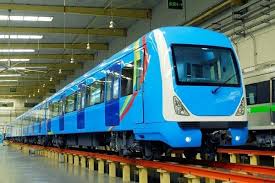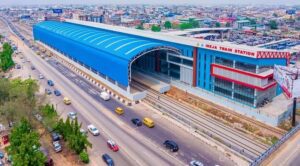
Apapa Gridlock: Ignorance of truckers responsible for ETO failure – TTP
By Seun Ibiyemi
Designers and Managers of ETO truck call-up system, Trucks Transit Parks (TTP) Limited, aimed at containing Apapa gridlock have lamented poor compliance by truck owners/drivers as well as a deviant resistance from an extortion industry worth a hundred million naira daily before the deployment of the electronic system for continued maritime traffic congestion.
Speaking with the media in Lagos, the Chief Operating Officer of TTP, Mr. Temidayo Adeboye, said that some actions of the truckers to circumvent ETO are fuelled by ignorance of the gains the new operational method would deliver to transporters if wholly embraced.
Adeboye who revealed that it took his company more than six years of painstaking research to understand Apapa Gridlock and build the electronic solution deployed in February 2021, said 50% of Apapa traffic were bound to the ports, adding that the focus is to effectively regulate the maritime traffic and solve half the problem.
“We have been researching Apapa for over six years and now understand the demographics of different truck traffic which can be categorized into three major parts, namely; the maritime traffic, oil and gas traffic; the FMCG’s (fast-moving consumer goods), manufacturers and freelancers.
“Holistically, we couldn’t take these segments at once, so we believed that if we are able to solve the problem for the largest single demographic among these three categories, it means that half of the problem will be resolved.
“It’s been tough. We had to build everything from the scratch. We couldn’t go out to buy a solution off the shelf since there is no country in the world with this particular type of port problem. We had to go round, visit places, take best practices and come here to develop our indigenous solution in Nigeria and by Nigerians,” he stated.
Noting the improvement in the flow of traffic, the COO said that the extortion industry whose earnings on the Port Access road was put at 100million naira daily before the introduction of ETO is being contained as more trucks are captured in the call-up system.
He said expectations are that the problem of corruption will be tackled once there is free-flow of traffic to and from the port.
“The extortion industry in this Apapa is about a hundred million a day. That is what it used to be. If we can fix 50% of the problem, nobody can extort money from port-bound truckers,” he said.
He disclosed that while other types of trucks have been streamlined and allocated time belts in a bid to ensure all trucks on ETO platform get into the ports within 24 hours of booking, export trucks have posed a major problem, challenging the entire project.
Adeboye who insisted that the ease of traffic in Apapa largely depends on effectively regulating the movement of export cargo and disclosed that NPA in tackling the challenge is creating export zones, stating that “until we find a solution to the export problem, we can’t get to that 24-hour entry target. The export problem is really abhorring.”
He said the cooperation of stakeholders and adherence to the policy and the time guideline would help a great deal.
“If everybody can just do the right thing, everybody will transit within 24hours. But right now, what we are seeing is a maximum of 48 hours if it is not an export container,” he said.
He also blamed the slow start of ETO on transporters who failed to heed the initial call to register as only 120 truckers with 2,000 trucks registered and attended their training but a week after the deployment of the scheme, the number rose to 2000 transporters and 50,000 trucks.
“On the day we started, we managed to register 120 transporters and about 2000 trucks but after a week of kick-starting the process, we recorded over 50,000 trucks and more than 2000 transporters. This was possible because many port users couldn’t find a better means of accessing the port but to go through the system.
“So many people that didn’t come for the training and were still stuck in the old ways of doing things. A combination of these factors nearly crashed our system before we had to create various segments,” Adeboye explained.
It will be recalled that the electronic call-up system otherwise known as ETO, developed by Trucks Transit Parks (TTP) Limited and subscribed to by Nigerian Ports Authority (NPA), is targeted at finding a lasting solution to Apapa gridlock largely caused by trucks to and from the Lagos Port Complex and the Tincan Island Port Complex. The program equally has the buy-in of the Lagos State Government and commenced operation on February 27, 2021.



